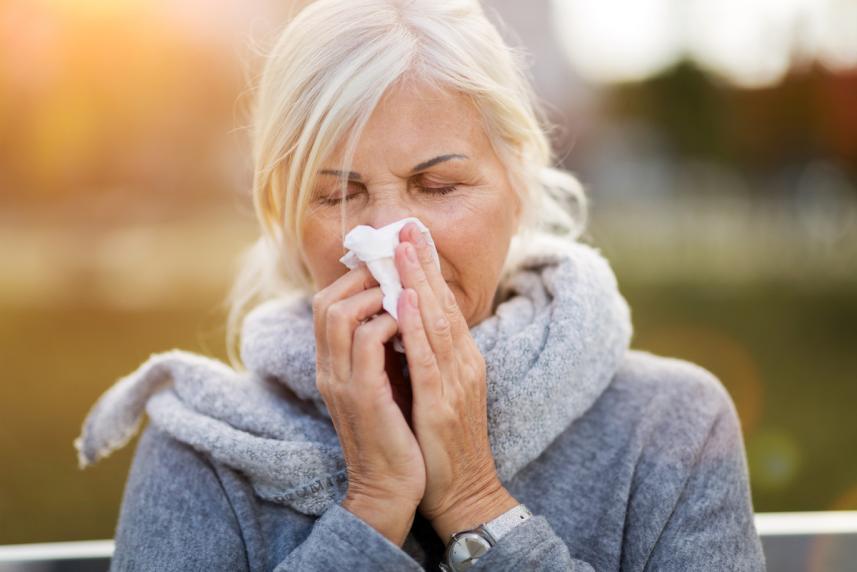Are you prepared for cold and flu season?
For those with COPD, taking extra health precautions during these months is crucial.

Like it or not, ’tis the season for sick days. If you have asthma, allergies, or COPD, it’s important to plan ahead for the possibility of getting a cold or the flu. That’s because catching either virus can raise your risk of getting an infection and damaging your lungs even more, says Frederick Troncales, M.D., a pulmonologist at CHI Franciscan Health in Burien, Washington. Arm yourself with these expert tips.
Start with prevention. Good old-fashioned hand-washing (done frequently with soap and warm water) is the first line of defense, followed by a yearly flu shot, says Michael Sims, M.D., an assistant professor of clinical medicine at the University of Pennsylvania School of Medicine. Other good prevention habits:
- Steer clear of crowded spaces
- Avoid people you know who are dealing with a bug
- Get enough sleep (seven to eight hours is recommended for most adults)
- Exercise regularly
- Eat right and stay well hydrated
- Take steps to de-stress
Ask about the pneumonia vaccine. Along with getting a flu shot, your doctor may want you to have the pneumonia vaccine as well. That’s because you may be at a higher risk for pneumonia due to conditions like COPD and asthma, or due to a history of smoking. There are two different types of the pneumonia vaccine: PCV13 and PPSV23. Talk to your doctor about which vaccine makes sense for you.
Have a sick-day plan. Despite your best efforts to dodge a virus, the cold or flu may still find you. That’s why it’s a smart idea to have an action plan ready. Ideally, you and your doctor will have already had a few conversations about what to do if you get sick. If not, give them a call and find out:
- What over-the-counter medicines are safe for you to take to relieve symptoms like congestion, fever, or pain
- What symptoms warrant staying home from work (your doctor may want you to call as soon as you get sick)
- Whether your treatment plan should change until you’re feeling better
Stay on guard. Even after you’ve weathered the worst symptoms of a cold or the flu, the virus can continue to aggravate asthma or COPD symptoms for a few more weeks. During this time, continue to stay away from smoke and other things that can trigger flare-ups. And call your doctor if you have any symptoms that worry you.


